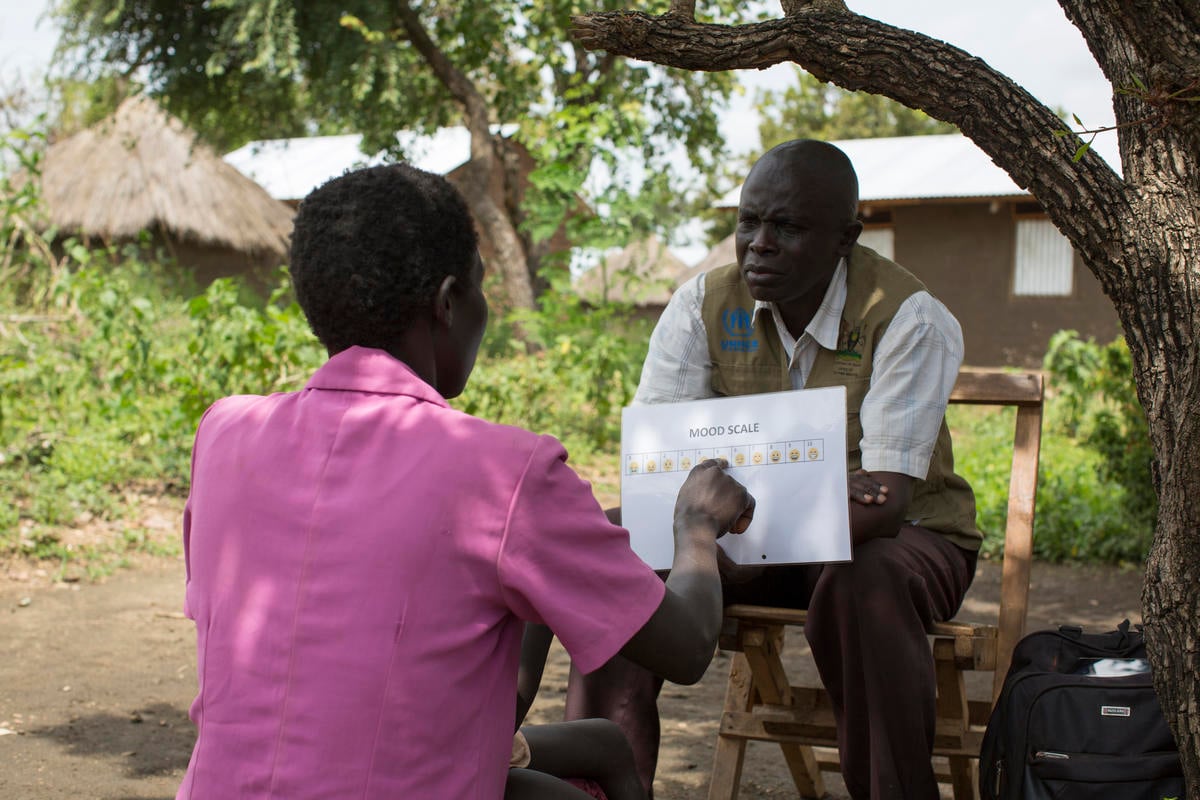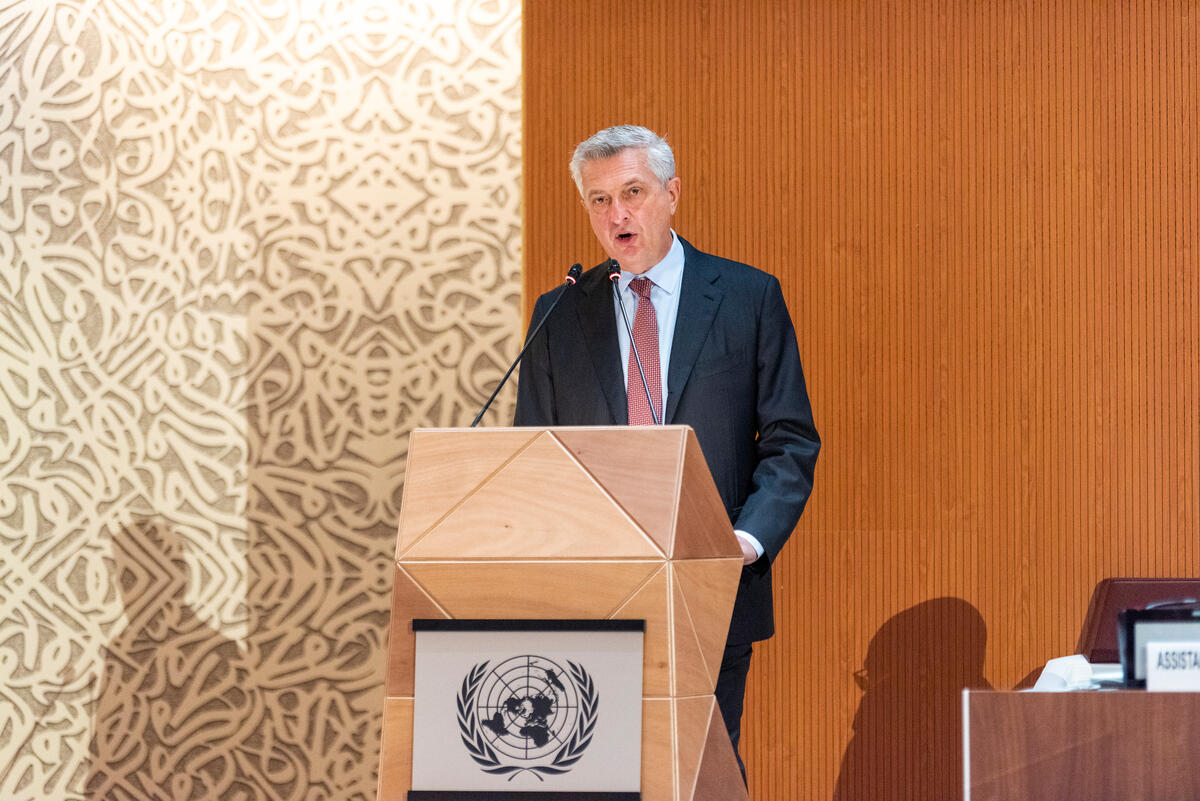Support Afghan reintegration efforts, say ministers, UNHCR
Support Afghan reintegration efforts, say ministers, UNHCR

GENEVA, Oct 1 (UNHCR) - Afghanistan's minister for refugees and his counterparts from Iran and Pakistan meeting in Geneva have called for continued strong support from donor states in order to ensure the successful reintegration of millions of Afghan refugees still outside their homeland.
Speaking at the annual meeting of UNHCR's Executive Committee in Geneva Tuesday, Enayatullah Nazari, Minister for Refugees and Repatriation of the Transitional Islamic State of Afghanistan, said that his country requires high levels of financial assistance to ensure its reconstruction.
"The first step (to ensure repatriation) is to create conditions suitable in Afghanistan," said Nazari. "What is necessary is the vast attention of donor countries to the reconstruction of Afghanistan."
The large number of Afghan refugees waiting to return and the country's precarious absorption capacity and fragile security situation remain major preoccupations for leaders in Iran and Pakistan as well as for UNHCR.
The two key asylum states estimate that they shelter some 3 million Afghans. The number of people of concern to the UN refugee agency is estimated at 1.1 million in Iran and 1.2 million in Pakistan.
Speaking alongside the visiting ministers, Assistant UN High Commissioner for Refugees Kamel Morjane told diplomats attending the panel on the sidelines of UNHCR's ExCom meeting that Afghanistan's enormous needs require continued strong financial support, and "an approach that goes beyond UNHCR."
Morjane's comments were echoed by Pakistan's minister responsible for refugees, Aftab Ahmed Khan Sherpao. "If we can expedite reconstruction in Afghanistan, that will be a pull factor," said Sherpao, who stressed that the bulk of the refugees in his country come from Afghanistan's southern and eastern provinces, areas where donors should particularly target development projects.
A major concern of UNHCR, the Afghan government and its neighbours is the sustainability of the repatriation and the future of large numbers of Afghan exiles who remain outside their country.
More than half a million people have returned so far in 2003, far outpacing any other return movement currently underway worldwide. But this fast-paced repatriation creates a particular challenge for Afghanistan, while its neighbours, having sheltered up to five million refugees at times during the past two decades, are keen to see all Afghans settle in their homeland.
"Reconstruction progress is hinged with the law and order situation," Sherpao told the gathered states, while noting the burden Afghans who remain may pose as UNHCR phases out its presence and assistance in Afghanistan over the coming years.
"My appeal would be, 'don't just forget us after 2005,' because the problem would still be there, the problem would still be alive, and we will have a huge burden on our economy, on the economy of Pakistan as a whole, this burden will be there," said Sherpao.
Ahmad Hosseini, adviser to Iran's Interior Minister and head of the Bureau for Aliens and Foreign Immigrants, told governments to keep focused on the conditions refugees returned to in Afghanistan.
"We must note that the duty of the [repatriation] programme is not just to cross refugees through the border, but rather its main duty is to pursue the fate of the returnees inside Afghanistan. After crossing the borders into their own country, we should see what conditions they're facing," said Hosseini.
Speaking passionately about the challenges his country faces, Afghanistan's minister told the assembled governments that refugees will go back to their country willingly, but that Afghanistan is currently unable to absorb all of them.
"I must mention that the needs of the Afghans - the reintegration - require more attention by the international community," said Nazari, noting that without continued strong support, reintegration will not take place "properly", and that Afghans will still seek to go abroad to support themselves and their families.
Nazari also raised concerns that urbanisation will overwhelm the impoverished state. "I worry that returnees will go back to big cities that lack absorption capacity and then start emigrating," he said, requesting that donors pay more attention to Afghanistan's needs.
The fragility facing Afghanistan and the importance its neighbours hold in keeping the war-ravaged country from sliding back into conflict and impoverishment were underscored by Pakistan's Sherpao, who said, "Afghanistan is the most important issue before the whole world."








